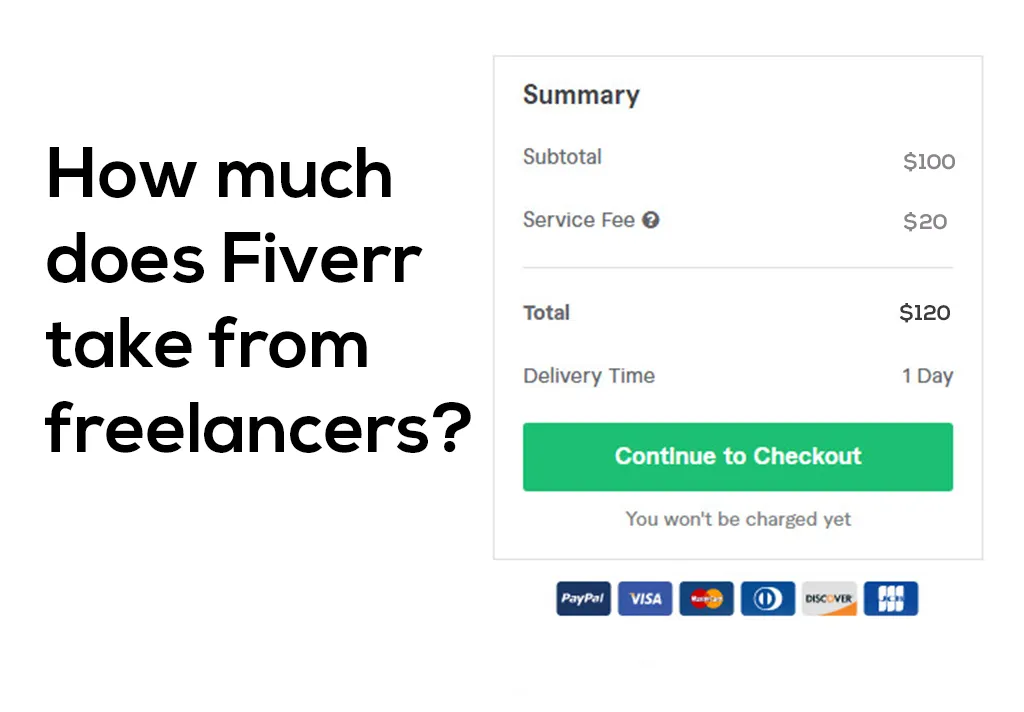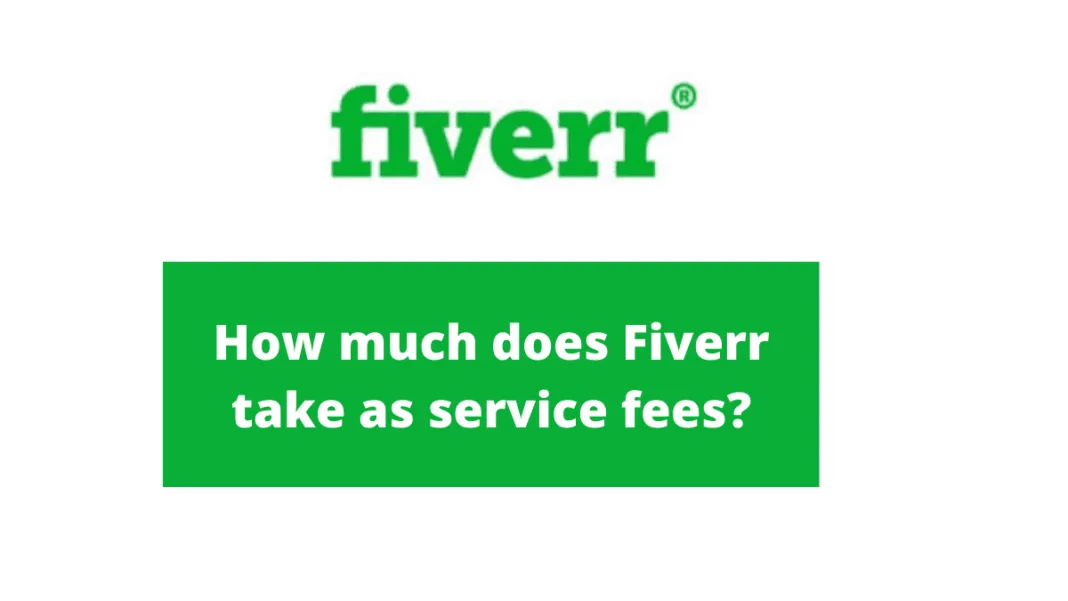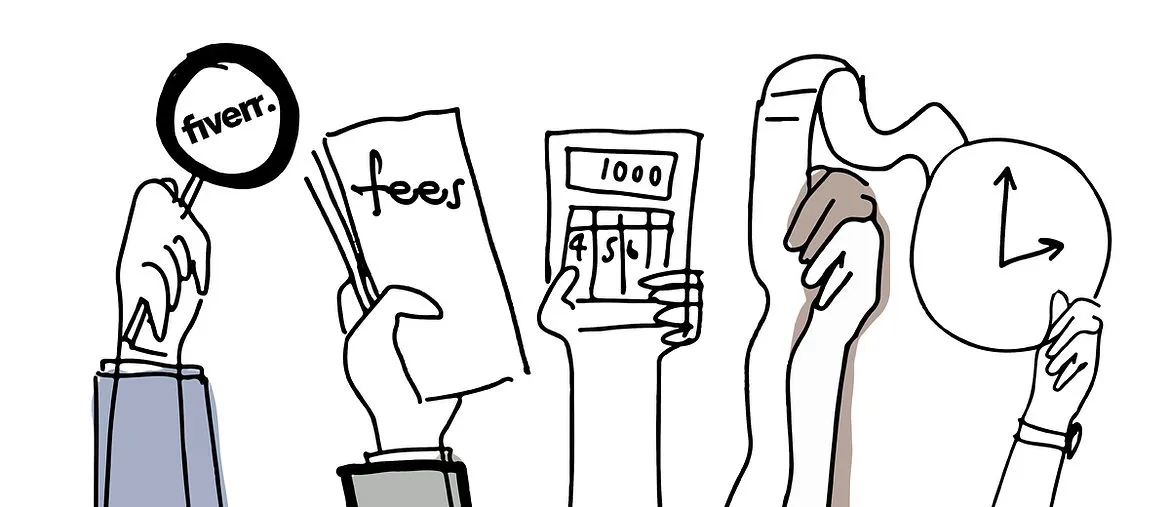Fiverr has become a go-to platform for freelancers and businesses alike, particularly in the design sector. If you're a designer thinking about offering your services or a business owner looking to hire talent, you might wonder: how much does Fiverr charge its designers? Understanding the fees involved is essential to make informed decisions for your projects. In this post, we’ll delve into Fiverr's pricing structure, so you know what to expect.
Understanding Fiverr's Pricing Structure

Fiverr operates on a fairly straightforward pricing model that both designers and clients should understand. Let’s break it down into more digestible bits:
- Base Gig Price: Every designer sets a base price for their services, known as a "Gig." This can start as low as $5, but many designers charge significantly more depending on their expertise and the complexity of the task.
- Add-ons and Packages: Many designers offer different service tiers—often referred to as "packages." You might see options like Basic, Standard, and Premium, each priced differently based on the features and deliverables included. Packages may encompass everything from faster delivery to additional revisions.
- Fiverr's Service Fee: Fiverr takes a cut from every transaction, which is typically around 20%. So, if a designer charges $100 for a Gig, they would receive $80 after Fiverr takes its share. This percentage can be a bit steep, but it supports the platform's infrastructure and marketing efforts.
- Payment Processing Fees: On occasion, you may also encounter additional payment processing fees charged by payment service providers. These fees vary based on the method of payment you choose.
All of these factors contribute to the final price you see on Fiverr. As a designer, it’s critical to factor in these fees when setting your prices, to ensure you're getting compensated fairly for your work.
Also Read This: How to Download a Folder of Files on Fiverr
Commission Rates for Designers on Fiverr

If you're a designer considering using Fiverr to showcase your talents and attract clients, one of the first things you might be curious about is Fiverr's commission rates. Understanding how much Fiverr takes from your earnings is crucial for setting your prices and ensuring you're adequately compensated for your work.
Fiverr operates on a tiered commission structure. The standard commission rate for most services, including design, is *20%. This means that if you charge a client $100 for your design service, Fiverr will take $20, leaving you with $80. While this might sound steep at first, it's essential to keep in mind the benefits for which you are paying, such as:
- Access to a Large Client Base: Fiverr has millions of active users, providing designers with a vast pool of potential clients.
- Marketing Tools: The platform promotes your services via targeted ads, saving you time and effort in marketing.
- Secure Payment System: Fiverr ensures timely payments, which can be a relief for freelancers.
- User-Friendly Interface: The platform is straightforward, making it easy to manage orders and communicate with clients.
It's also worth noting that the commission structure applies to any add-ons or extras you might offer alongside your main service. If you're thinking about increasing your rates to offset Fiverr's cut, you might want to consider how to enhance your offerings instead. Keep in mind that excellent service can lead to repeat business and tips from satisfied clients!
Also Read This: Is Fiverr Still Popular? A Comprehensive Analysis
Factors Influencing Designer Charges on Fiverr

When setting your price on Fiverr, there are several factors that come into play. It's essential to consider both your unique skills and the market demand to create a competitive pricing strategy. Here are some of the key factors* that influence how much designers charge on Fiverr:
- Experience Level: More experienced designers often charge higher rates due to their established skills and portfolio. If you’re just starting, you might want to consider pricing your services competitively to draw in initial clients.
- Complexity of the Project: A simple logo design may cost significantly less than a full branding package. Be sure to factor in the time and effort you'll invest in each project.
- Market Trends: Keeping an eye on what other designers are charging can help you set your rates. If similar gigs are priced higher or lower, adjust your charges accordingly to stay competitive.
- Additional Services: Offering add-ons or extras, like expedited delivery or multiple revisions, gives you the opportunity to increase your earnings while providing clients with greater flexibility.
- Reviews and Ratings: Building a strong reputation through positive reviews can justify higher pricing. Clients are often willing to pay more for quality work from a trusted freelancer.
Remember, it’s a balancing act. Pricing too high can limit your client base, while pricing too low may undervalue your skills. Take the time to review and adjust your rates regularly based on these factors and your evolving experience in the industry!
Also Read This: How to Get More Out of Fiverr: Tips and Strategies for Success
5. Comparing Fiverr with Other Freelance Platforms
When it comes to freelance work, Fiverr is just one of many platforms available to designers and creative professionals. Let’s take a closer look at how Fiverr stacks up against some of its competitors.
Platforms like Upwork, Freelancer, and 99designs offer diverse options for freelancers, but they each have their own fee structures and characteristics. Here’s a quick comparison:
| Platform | Fee Structure | Target Audience | Project Types |
|---|---|---|---|
| Fiverr | 20% service fee based on sales | Small businesses to individuals | Small tasks (gigs) starting at $5 |
| Upwork | 20% for the first $500, tiered after that | Businesses to companies | Longer-term projects or hourly work |
| Freelancer | 10% to 20% depending on project type | Small to large projects | Bidding on projects |
| 99designs | 5% to 15% depending on project size | Clients seeking design work | Design contests and direct work |
So, while Fiverr is great for finding quick gigs at lower prices, platforms like Upwork might be better suited for more extensive projects with larger budgets. Each platform has its advantages, and the best choice largely depends on your specific needs and working style.
Also Read This: Where Can I Promote My Fiverr Gig?
6. Tips for Designers to Maximize Earnings on Fiverr
If you're a designer looking to boost your earnings on Fiverr, here are some tried-and-true tips that can help you stand out and attract more clients. Trust me, these strategies can make a significant difference!
- Optimize Your Profile: Make sure your profile is complete with a professional photo and a compelling bio. Highlight your skills and showcase your best work in your portfolio.
- Offer Competitive Pricing: Research the market and ensure your prices are comparable. Consider starting at a lower price to attract initial clients and then gradually increasing it as your reputation grows.
- Create Multiple Gigs: Diversify your offerings by creating multiple gigs tailored to different design needs, whether it’s logo design, social media graphics, or website layouts. This gives potential clients more options and increases your visibility.
- Engage with Clients: Be responsive and professional in your communication. Good rapport can lead to repeat business and referrals, which are invaluable for your career.
- Collect Testimonials: Positive reviews can greatly enhance your credibility. After a successful project, kindly ask your clients for feedback.
- Utilize Social Media: Promote your Fiverr gigs on social media platforms to reach a larger audience. Creative visuals can catch potential clients’ attention!
Remember, success on Fiverr requires patience and persistence. By following these tips, you’ll be well on your way to increasing your earnings and building a solid reputation as a designer on this platform.
How Much Does Fiverr Charge Designers?
Fiverr has become a popular platform for freelancers, especially graphic designers, looking to offer their services. However, many are curious about the fees associated with using Fiverr. Understanding these fees is crucial for designers in determining their pricing strategy and overall profitability.
Fiverr operates on a commission-based system, where it charges freelancers a percentage of their earnings. The key details are as follows:
| Service Type | Fiverr Fee |
|---|---|
| Basic Gig Pricing | 20% commission on the total sale |
| Gig Extras | 20% commission on the total sale |
| Custom Offers | 20% commission on the total sale |
This means that if a designer sets a gig price of $100, Fiverr will retain $20, leaving the freelancer with $80. Additionally, there are also transaction fees for withdrawals, which vary depending on the method used (PayPal, bank transfer, etc.).
Furthermore, designers should be aware of potential costs for promoting their gigs through Fiverr’s various marketing tools. Participation in these promotional activities may incur additional fees.
Understanding these charges enables designers to price their services competitively while ensuring they cover the costs associated with using the platform.
Conclusion: Being informed about Fiverr's commission structure and additional fees is essential for designers to create an effective pricing model that ensures profitability while attracting potential clients.



